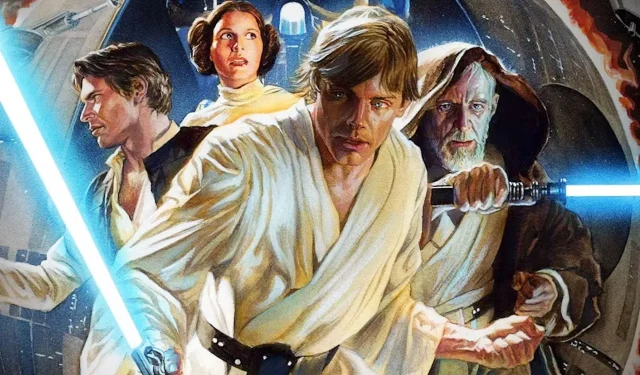Marvel Comics has evolved into an iconic brand, rivaling the renown of Star Wars, largely due to a pivotal turning point in its history. Interestingly, it was George Lucas’ legendary space saga that played a crucial role in preventing Marvel from faltering during turbulent times. With both brands now under the Disney umbrella, the narrative of how Star Wars rescued Marvel resembles the thrilling moments of the Millennium Falcon saving Luke Skywalker in the decisive battle against the Death Star.
Former Marvel Editor-in-Chief Jim Shooter chronicled this fascinating story on his blog, Jimshooter.com. He elaborates on Marvel’s acquisition of the Star Wars licensing rights just before the groundbreaking film’s 1977 debut and how this strategic decision played a vital role in keeping the struggling publisher afloat. In his article titled “Roy Thomas Saved Marvel,”Shooter highlights the precarious circumstances the company faced at the time.
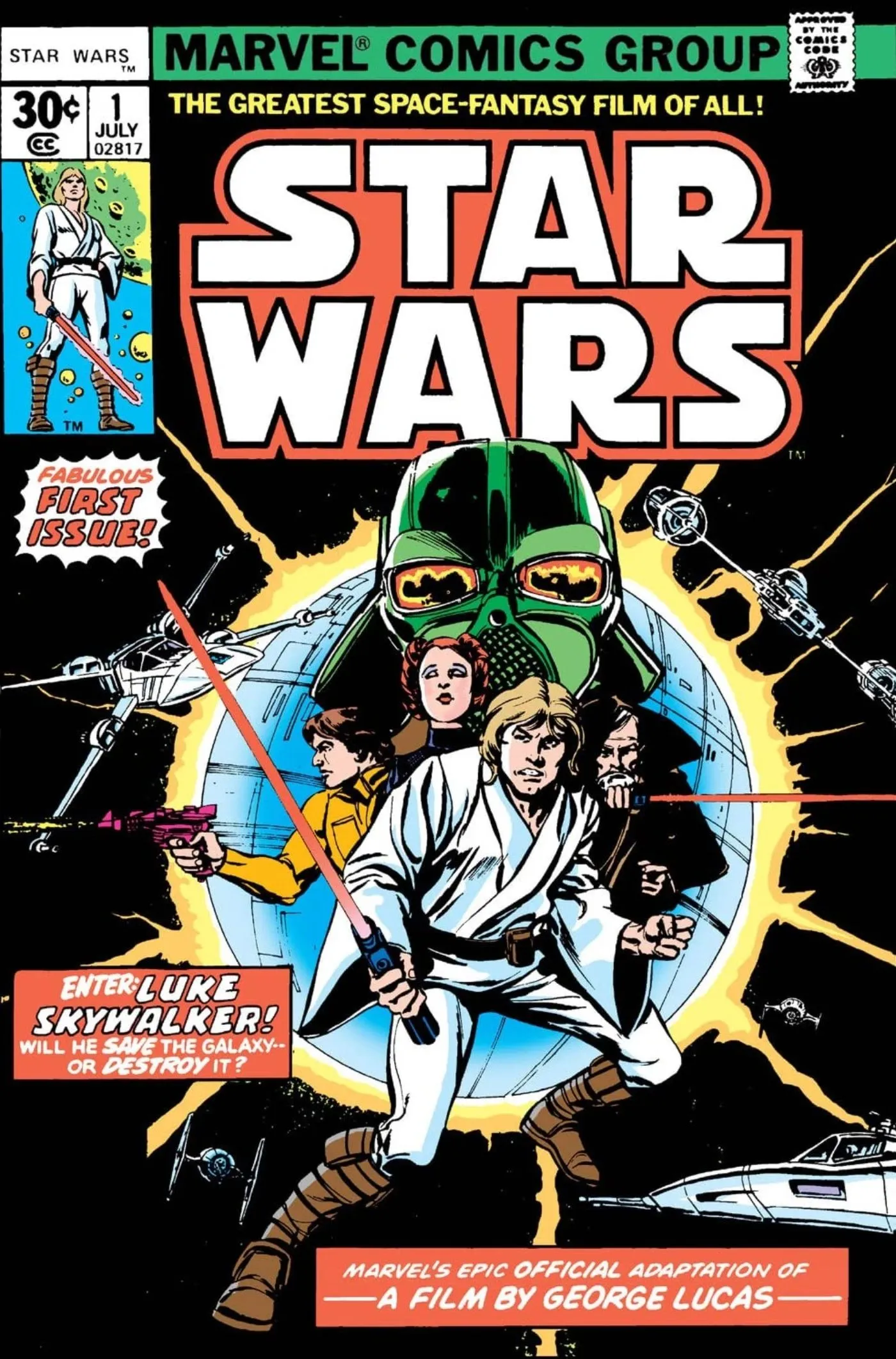
Describing the bleak landscape of Marvel Comics during the late 1970s, Shooter notes, “Sales were bad and falling.” He paints a somber picture of the publisher, stating, “The comics overall were breakeven at best…It seemed like the company as a whole was in a death spiral.”
Marvel Comics Acquired the Rights to Star Wars Just as Trouble Loomed, Potentially Saving the Entire Company
Comic Sales Were Slipping in the 1970s

The decline in comic sales during the 1970s was not exclusive to Marvel; it plagued the entire comic industry. This was a time before specialty comic book stores became the norm, with many titles still reliant on the traditional newsstand distribution model. The newsstand market became increasingly untenable for numerous publishers as sales started to plummet.
An illustrative example of this struggle is the “DC Explosion,” a failed initiative from DC Comics meant to introduce new titles but that ended with rapid cancellations.
Working as an associate editor at Marvel during this challenging time, Shooter recalls the environment candidly: “Marvel was a mess throughout the mid-1970s and during my two years as ‘associate editor,’ from the beginning of 1976 through the end of 1977.”Roy Thomas, a fellow Marvel editor, was the catalyst who recognized the potential of Lucas’ upcoming film, proposing that the publisher pursue licensing rights for what he described as “an upcoming science fiction movie called Star Wars.” However, this idea faced considerable skepticism.
Shooter shares insights into Marvel’s hesitation regarding the adaptation: “The prevailing wisdom said ‘science fiction doesn’t sell,’ making the prospect of adapting a movie with the seemingly whimsical title ‘Star Wars’ seem misguided to many.”With sales already in decline, Marvel’s reluctance to take a chance on an unproven venture is understandable. Much like the many studios that initially overlooked Lucas’ unique vision, Marvel nearly passed on the opportunity to produce Star Wars comics.
The Popularity of the Star Wars Comics at Marvel Completely Changed the Company’s Outlook
Marvel Sees Hope in a Galaxy Far, Far Away
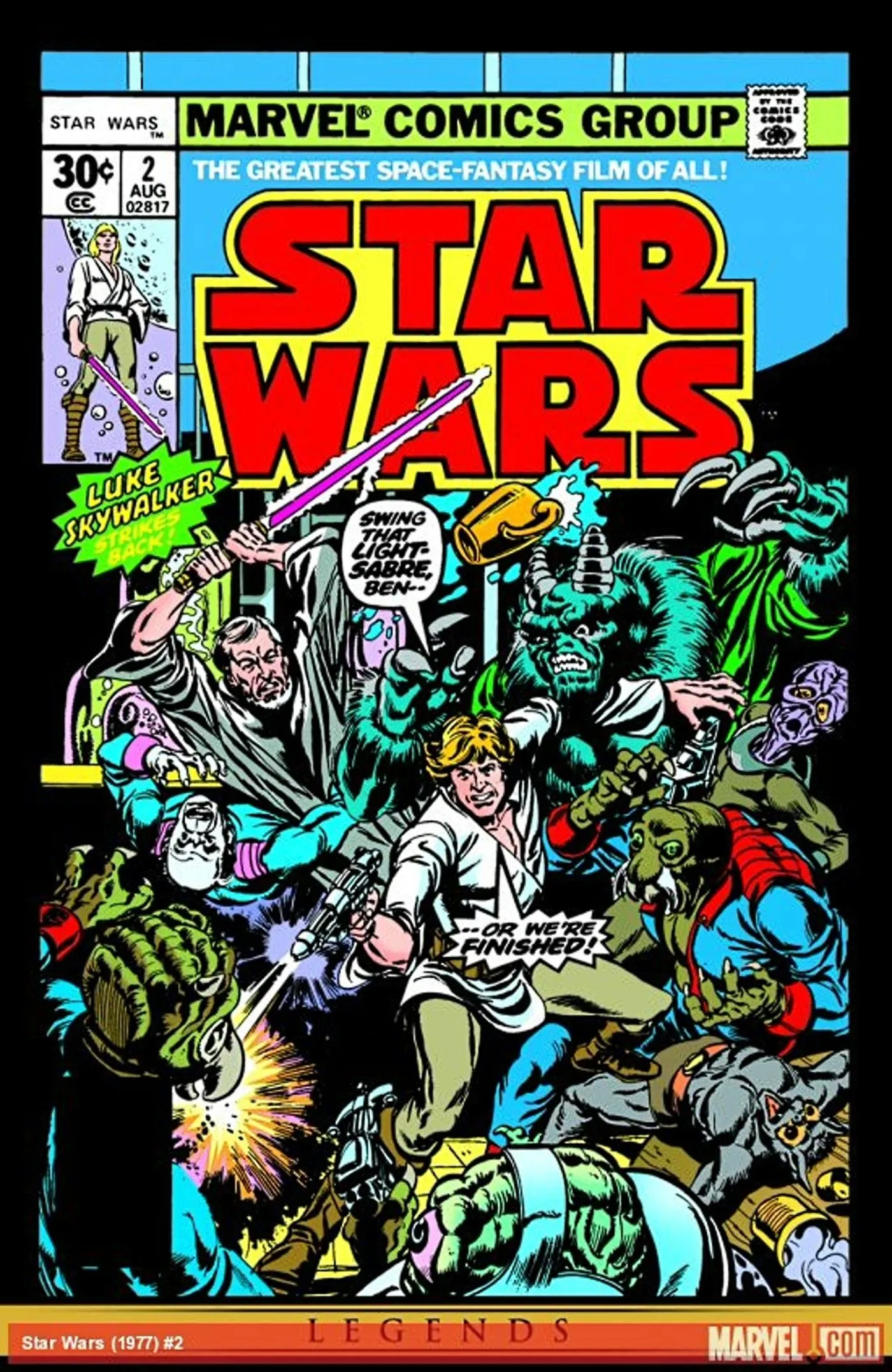
Despite the strong opposition, Thomas successfully secured the licensing rights for Star Wars before the film’s release in 1977. Shooter chimically muses, “I don’t know how Roy got it done, but he managed.” Star Wars #1 debuted on April 12, 1977, a staggering one and a half months prior to the film’s much-anticipated May 25 premiere. The creative collaboration between Thomas and Howard Chaykin adapted the film’s storyline and then expanded to introduce new narratives.
The Force Was Strong with Marvel Comics Thanks to Its Star Wars Adaptation
The Now-Classic Series Kickstarted Sales
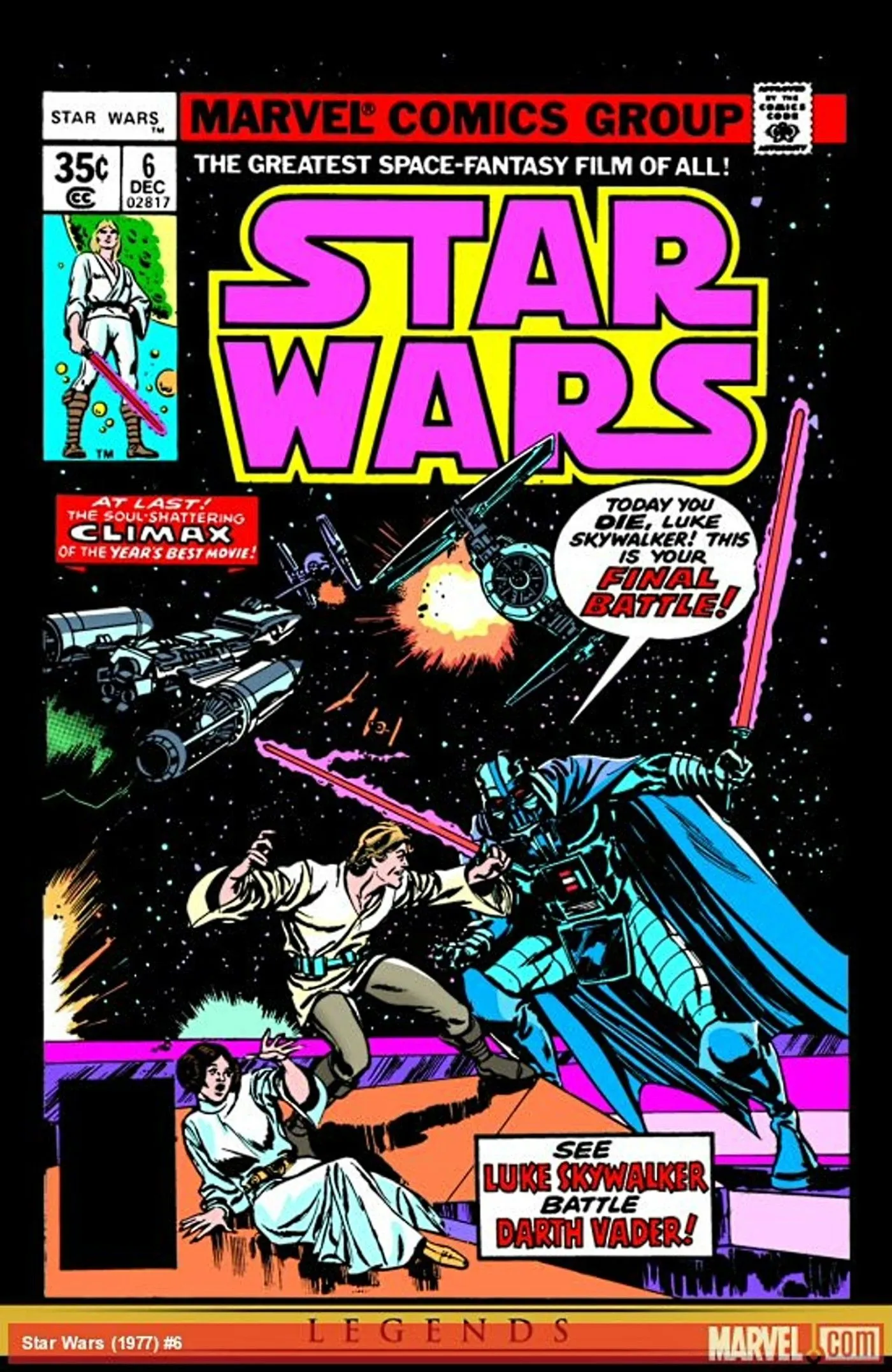
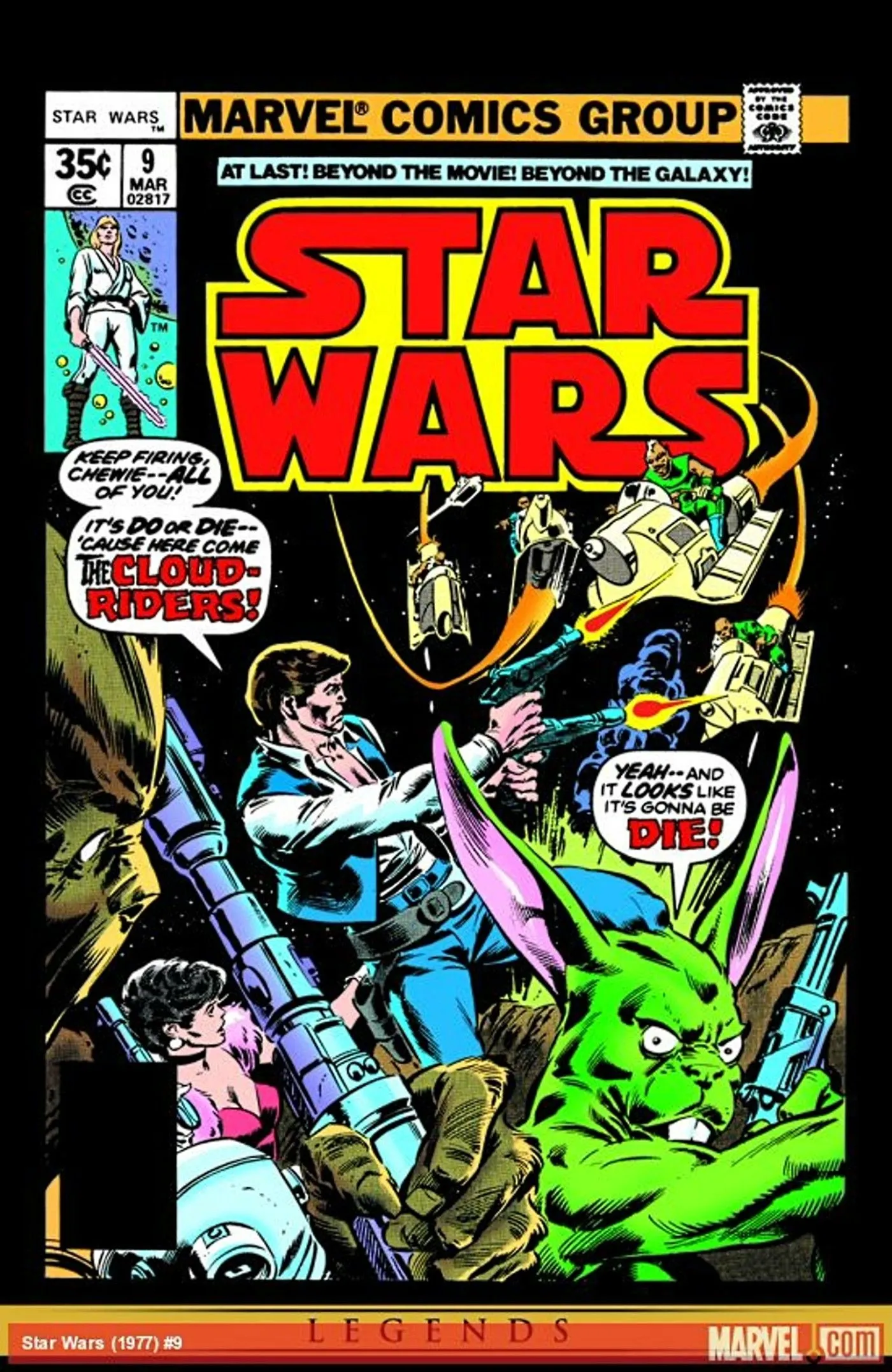
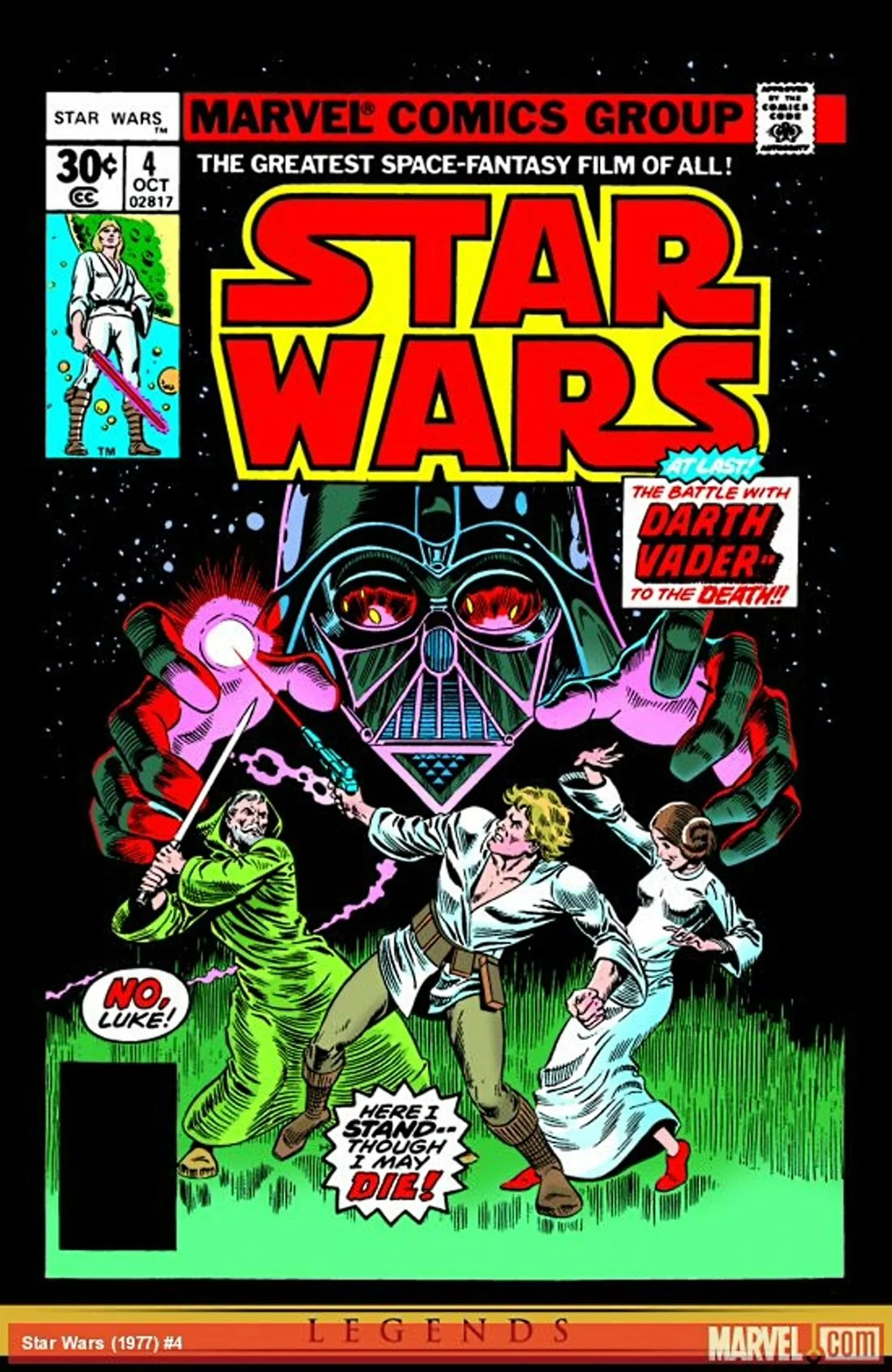
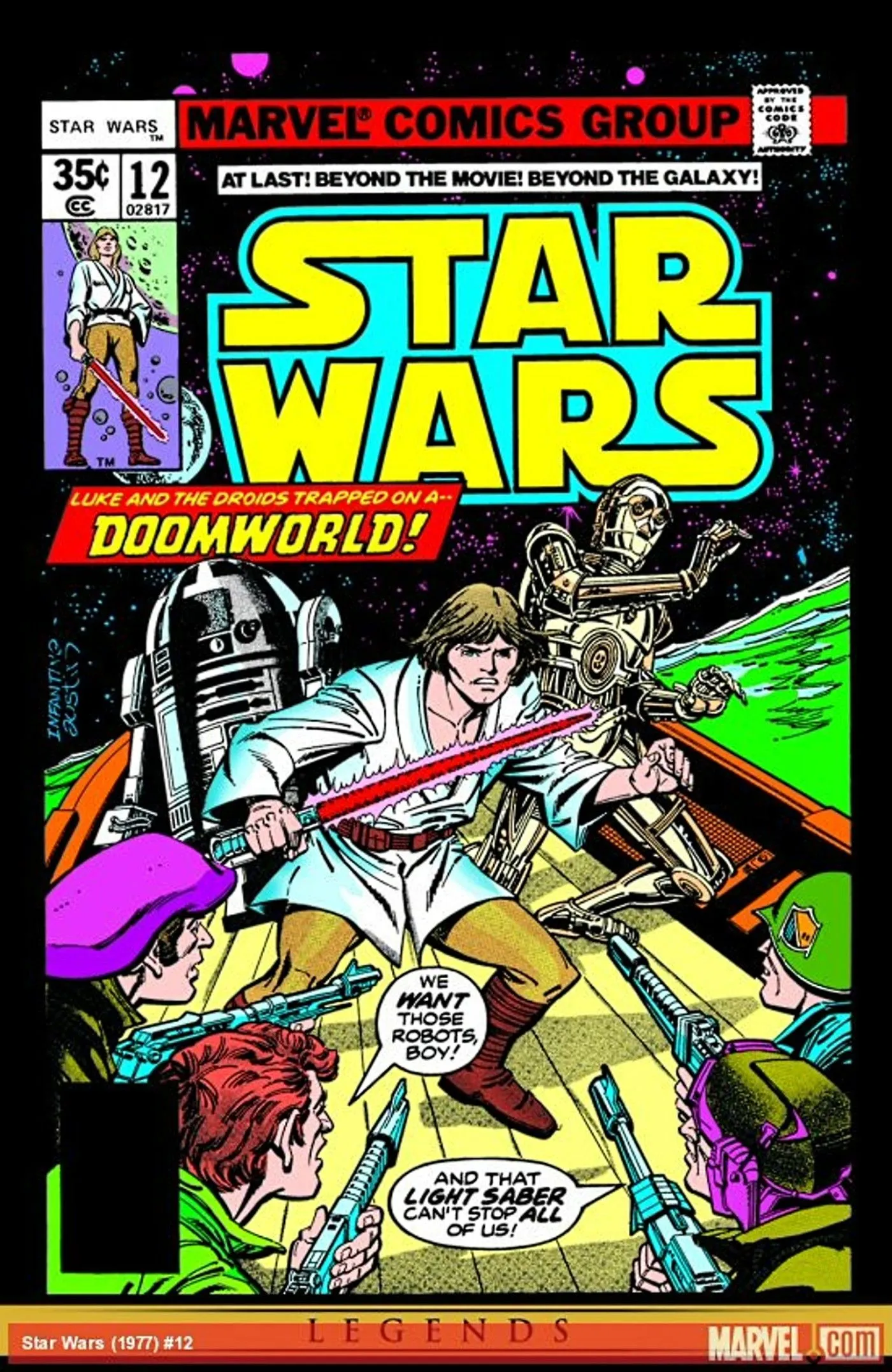
Marvel’s fortunes began an upward trajectory as Star Wars transcended the realm of typical cinematic success. The cultural impact of the film was immense, and Shooter vividly captures the excitement of the time: “Our first two issues, part of a six-issue adaptation, were released ahead of the film. Sales surged, especially as the movie debuted. Star Wars became a cultural phenomenon akin to the impact of the Beatles. The comics were flying off the shelves.”
“The first two issues of our six (?) issue adaptation came out in advance of the movie. Driven by the advance marketing for the movie, sales were very good. Then about the time the third issue shipped, the movie was released. Sales made the jump to hyperspace. Star Wars the movie stayed in theaters forever, it seemed. Not since the Beatles had I seen a cultural phenomenon of such power. The comics sold and sold and sold. We reprinted the adaptation in every possible format. They all sold and sold and sold.”
Star Wars adeptly harnessed the potential of licensed media, benefitting Marvel significantly at a crucial juncture. Following the release of the original film, the Star Wars brand became a substantial revenue source for Marvel. Shooter highlights the importance of the comics to the publisher’s resilience: “It is indisputable that the success of the Star Wars comics played a vital role in ensuring Marvel survived through the difficult years of 1977 and 1978.”
Marvel continues to publish Star Wars comics, with a new title set to launch on May 7, 2025, crafted by Alex Segura and Phil Noto. The continued legacy of Star Wars in the comic book space remains robust, appealing to fans eager for storytelling that expands on Lucas’ cinematic universe.
Given the original film’s rise to fame, it’s evident why Star Wars thrived at Marvel. In an era where film franchises were still conceptual, audiences seeking more content about their heroes could turn to Marvel. Reports suggest that Star Wars #1 sold upwards of a million copies throughout 1977.
Would Marvel Comics Exist Today If Not for Star Wars?
The Answer Is Pretty Clear
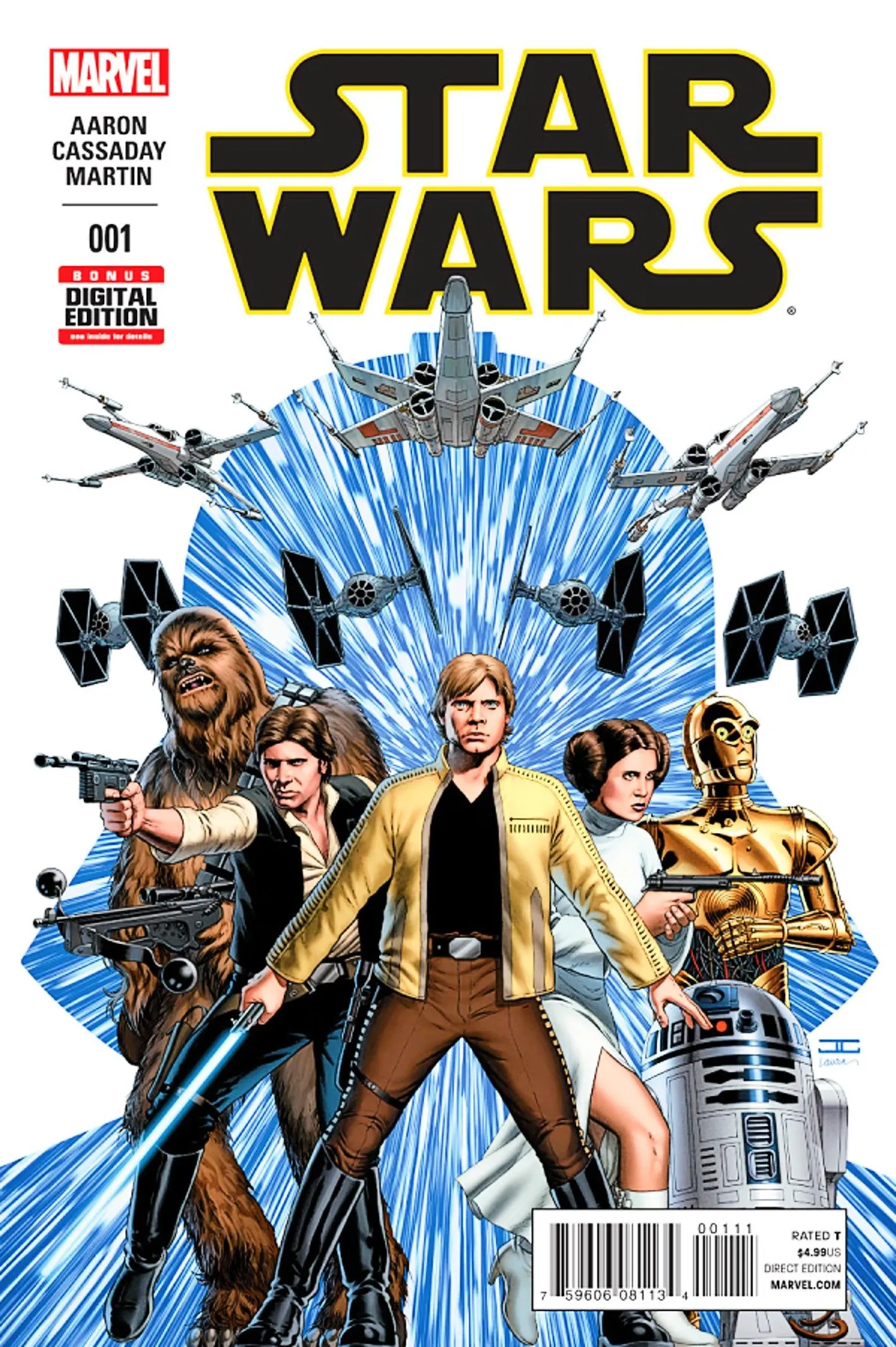
While it may seem exaggerated, Shooter’s claim that Star Wars was a lifeline for Marvel during a precarious period encapsulates the larger significance of Lucas’ work, not just for Marvel but for the entire comic book industry. Even as interest in the series gradually waned and led to the cancellation of Marvel’s title in 1986—after its license shifted to indie publisher Dark Horse Comics—the legacy of Star Wars remained impactful.
Marvel eventually reacquired the licensing rights in 2015, facilitating the return of the Galaxy Far, Far Away to the publisher that once took a gamble on its potential. Regardless of current publishers, Star Wars endures as a staple of the comic book landscape, evidenced by an abundance of titles available for fans. It’s remarkable to ponder how much the comic realm might differ today without the monumental success of Star Wars.
The original Star Wars comic book series is currently available from Marvel Comics.
Source: Jim Shooter
